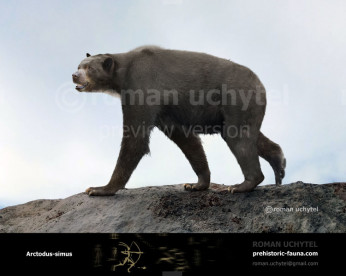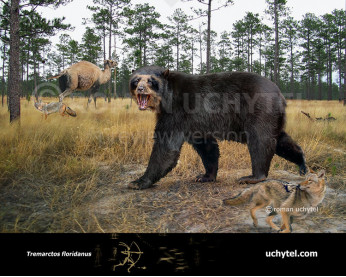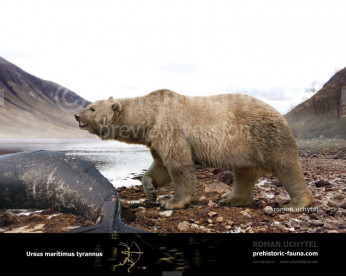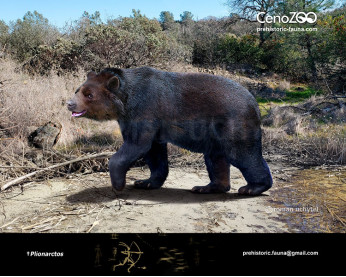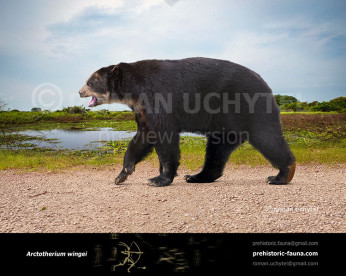Arctotherium angustidens (South American short-faced bear)
9797South American short-faced bear (Arctotherium Burmeister, 1879)
Order: Carnivora
Family: Ursidae
Dimensions: length - 3 m, height - 180 сm, weight - 600-1750 kg
Temporal range: Pleistocene - Holocene of South America (~1.1 Ma – 10 000 years ago)
A typical representative: Arctotherium angustidens Gervais and Ameghino, 1880
Arctotherium is an extinct genus of South American short-faced bears within Ursidae of the late Pliocene through the end of the Pleistocene. Their ancestors migrated from North America to South America during the Great American Interchange, following the formation of the Isthmus of Panama. They were endemic to South America, living from ~2.0–0.01 Ma, existing for approximately 1.99 million years. Their closest relatives were the North American short-faced bears of genus Arctodus. The closest living relative would be the spectacled bear. A skeleton of Arctotherium angustidens from Buenos Aires indicates big males of this species would have weighed 1.6 tonnes, standing 3.4 meters tall, making it the largest bear known. In contrast to their North American cousins, South American short-faced bears showed a trend of declining size and carnivory over time. This has been attributed to increased competition form other later-arriving or evolving carnivorans following the early dispersal of short-faced bears to South America. (The North American carnivorans that invaded South America, including short-faced bears and Smilodon, quickly dominated the predatory niches formerly occupied by South America's native metatherian sparassodont and avian phorusrhacid carnivores.)
South American short-faced bear (Arctotherium Burmeister, 1879)
Order: Carnivora
Family: Ursidae
Dimensions: length - 3 m, height - 180 сm, weight - 600-1750 kg
Temporal range: Pleistocene - Holocene of South America (~1.1 Ma – 10 000 years ago)
A typical representative: Arctotherium angustidens Gervais and Ameghino, 1880
Arctotherium is an extinct genus of South American short-faced bears within Ursidae of the late Pliocene through the end of the Pleistocene. Their ancestors migrated from North America to South America during the Great American Interchange, following the formation of the Isthmus of Panama. They were endemic to South America, living from ~2.0–0.01 Ma, existing for approximately 1.99 million years. Their closest relatives were the North American short-faced bears of genus Arctodus. The closest living relative would be the spectacled bear. A skeleton of Arctotherium angustidens from Buenos Aires indicates big males of this species would have weighed 1.6 tonnes, standing 3.4 meters tall, making it the largest bear known. In contrast to their North American cousins, South American short-faced bears showed a trend of declining size and carnivory over time. This has been attributed to increased competition form other later-arriving or evolving carnivorans following the early dispersal of short-faced bears to South America. (The North American carnivorans that invaded South America, including short-faced bears and Smilodon, quickly dominated the predatory niches formerly occupied by South America's native metatherian sparassodont and avian phorusrhacid carnivores.)

-797x638.jpg)
-797x638.jpg)
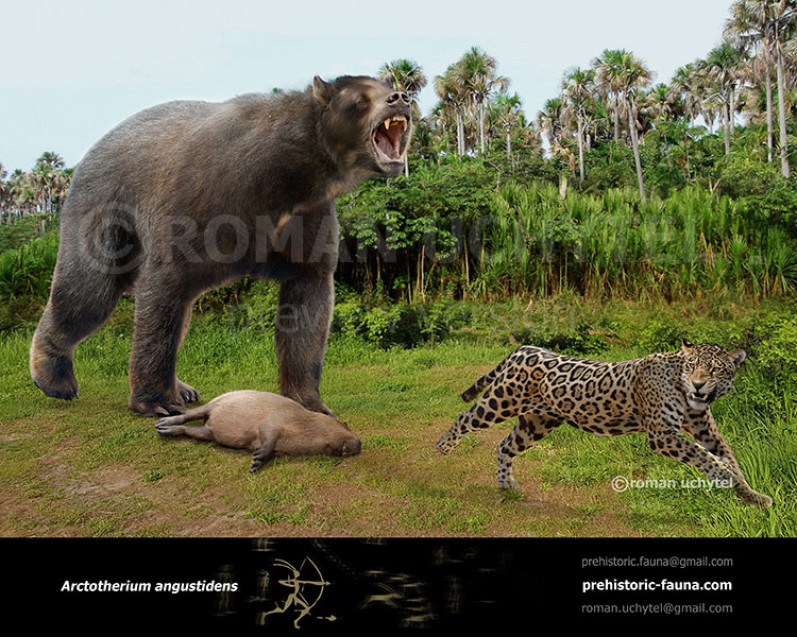
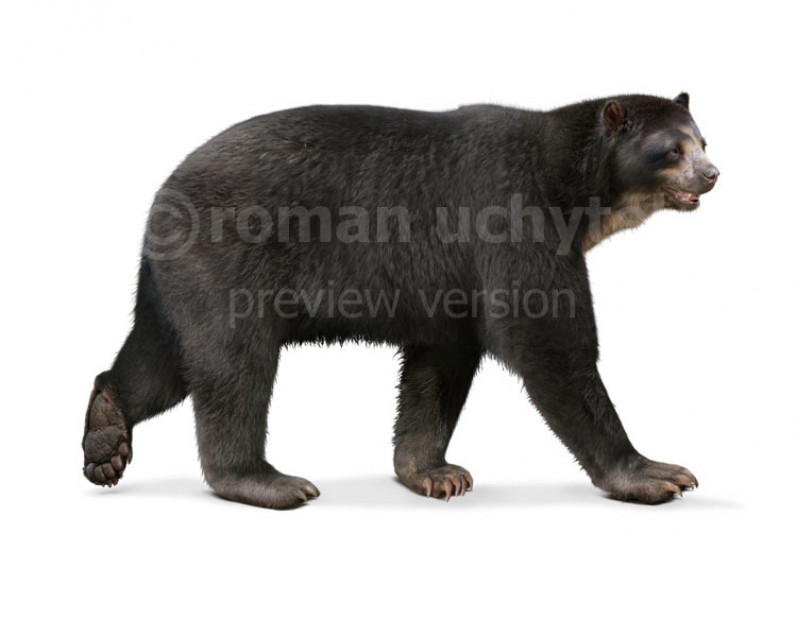
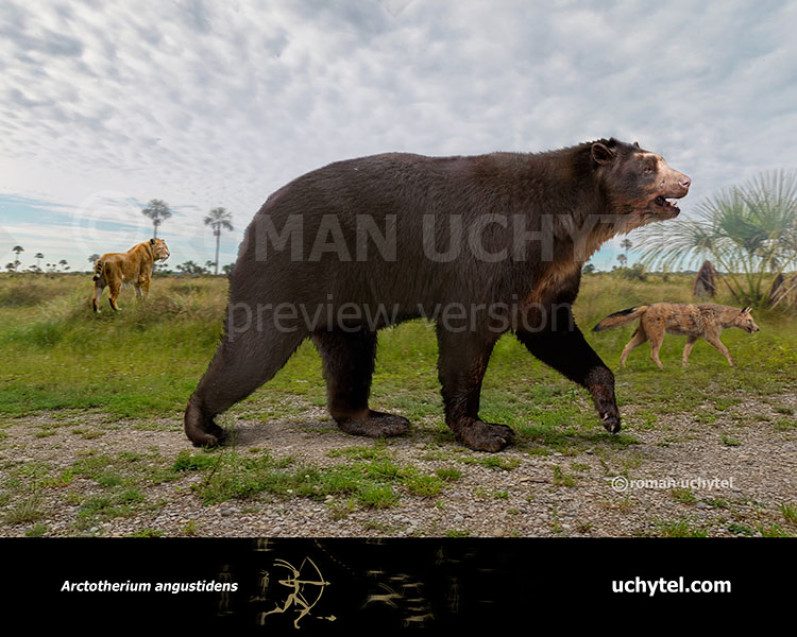
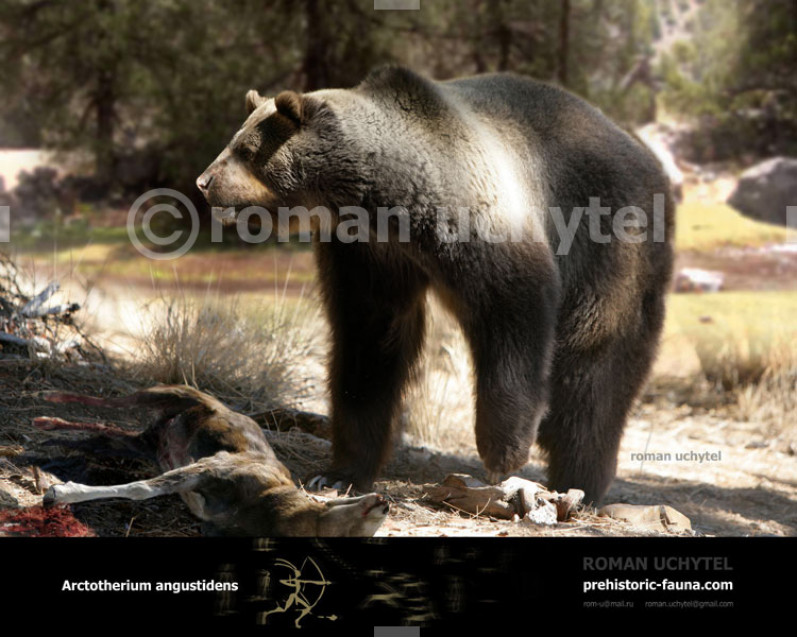
-4-797x638.jpg)
-797x638.jpg)
-70x56.jpg)
-70x56.jpg)




-4-70x56.jpg)
-70x56.jpg)
